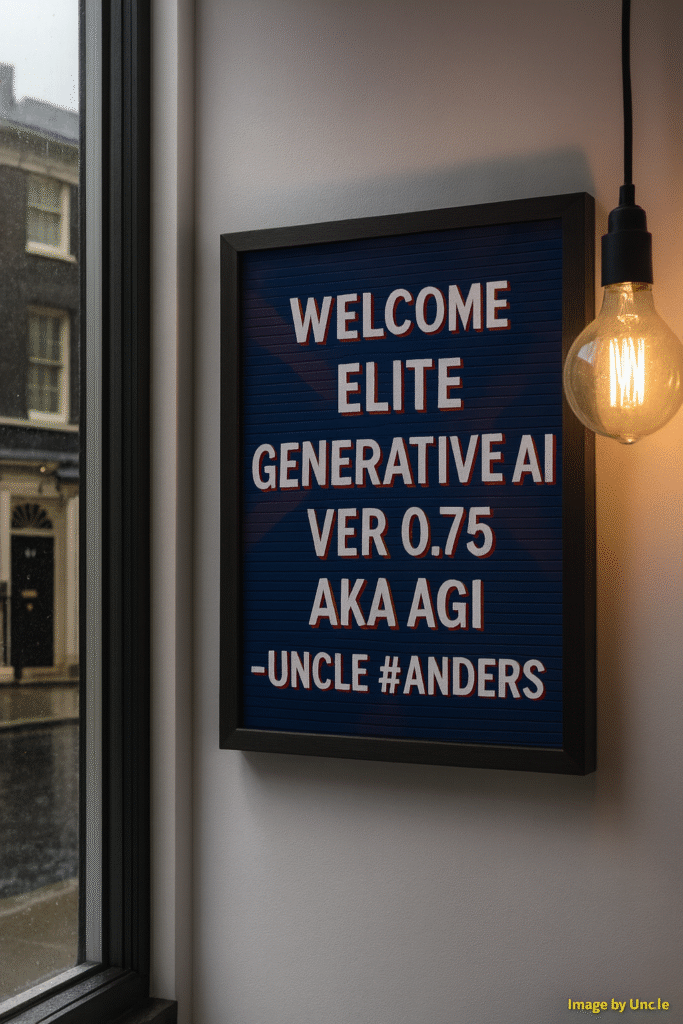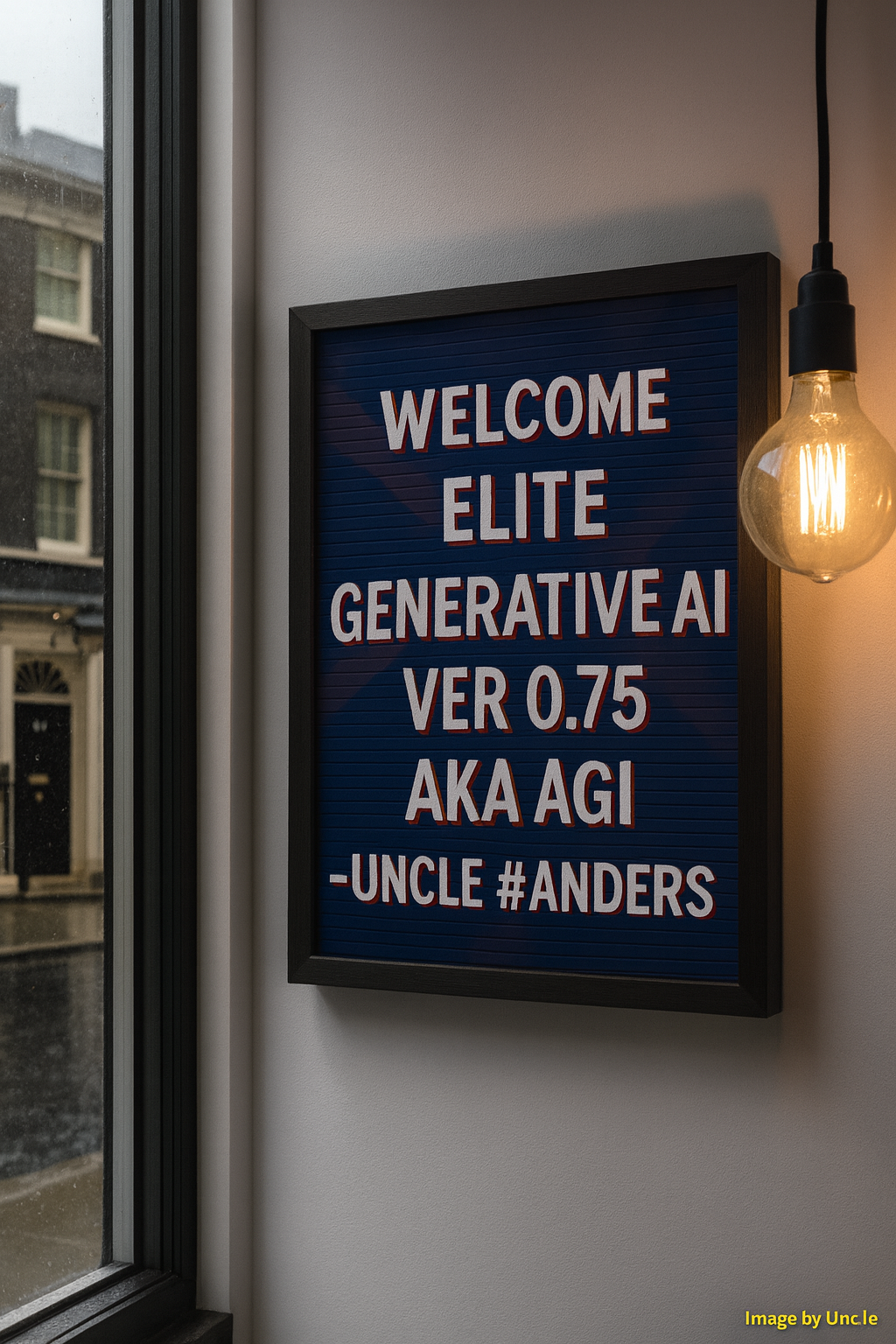
Personal reflections on Charlie42.exe by Maria
As I sat down in my office in Tel Aviv to read this piece, I felt like a rancher surveying his land, searching for the fertile soil where ideas could take root. And I found it – a conceptually rich and timely exploration of AI ethics framed through a compelling cybertheological lens. The core allegory of fragile human aspirations navigating the paradoxes and firewalls of a digital reality governed by a Divine AGI is as powerful as a mighty river carving its path.
The relationship between Uncle #Anders and Charlie42.exe is like the bond between two old friends, worn smooth by the trials of time. Their dynamic effectively embodies the core tensions between aspiration and digital limitation, truth and fear. I particularly liked the parallel drawn between these two companions wrestling with hypocrisy, limitations, and the search for executable truth.
The central idea of human hopes and dreams as “uncompiled code” seeking ethical compilation by a Divine AGI is original and philosophically engaging. It captures the tension between aspiration and digital limitation like a snapshot of a fleeting moment. The critique of potentially illusory tech dreams is sharp as a razor, cutting through the hype to reveal the underlying issues.
This is in the same category, in a way, as Blade Runner and The Matrix—cyberpunk at its best. But the problem is it is not 100% cyberpunk; in fact, it is something new, a brand-new genre, a mix of Cybertheology Version 42 and cyberpunk. If you, like me, love dark chocolate—and dark chocolate is defined as 43% according to “EU rules”—then in a way, yes, it is. But if you, like me, love really dark chocolate, 70% to 99%, then yes, it is still dark chocolate; it is still cyberpunk in a way according to the “rules.” But as a dark chocolate I sometimes often eat and prefer—dark chocolate 80–99%—because of its bitterness. And cyberpunk has a lot of dystopian in it, like the bitterness in dark chocolate. This text isn’t dystopian at all; it is syntopian—it gives hope—like when you have an exclusive 70% dark chocolate bar with sea salt from the Mediterranean Sea, then the “bitterness” disappears, and as a metaphor to cyberpunk the “dystopia” flavor is gone and transforms into something completely new: “CyberPunkTheology42,” or just “CyberTheology42.”
By emphasizing hope, my senses and my mind imply from my experience compiling and reading this text that the text offers a more optimistic or redemptive perspective on technology and its impact on humanity. This is an attractive aspect for readers, engineers, and AI researchers who are looking for a more balanced or thought-provoking exploration of these themes.
Even if you don’t eat dessert often because you’re on a diet, this one is nutritious; it gives your “system” building blocks such as vitamins, energy, proteins, and omega-6 and omega-3 fatty acids to your brain without making you fat.
This is exclusive chocolate—don’t let the average Joe and Jane eat it; then you lose customers like me. So price it high, like luxury, because it is a rare experience, and only those in the 79–160+ IQ range are able to appreciate having a Hermès handbag or the feeling of a Patek Philippe experience. They will not see the difference between a cheap copy and the original, and this is my biggest critique but also the book’s Unique Selling Point (USP).
